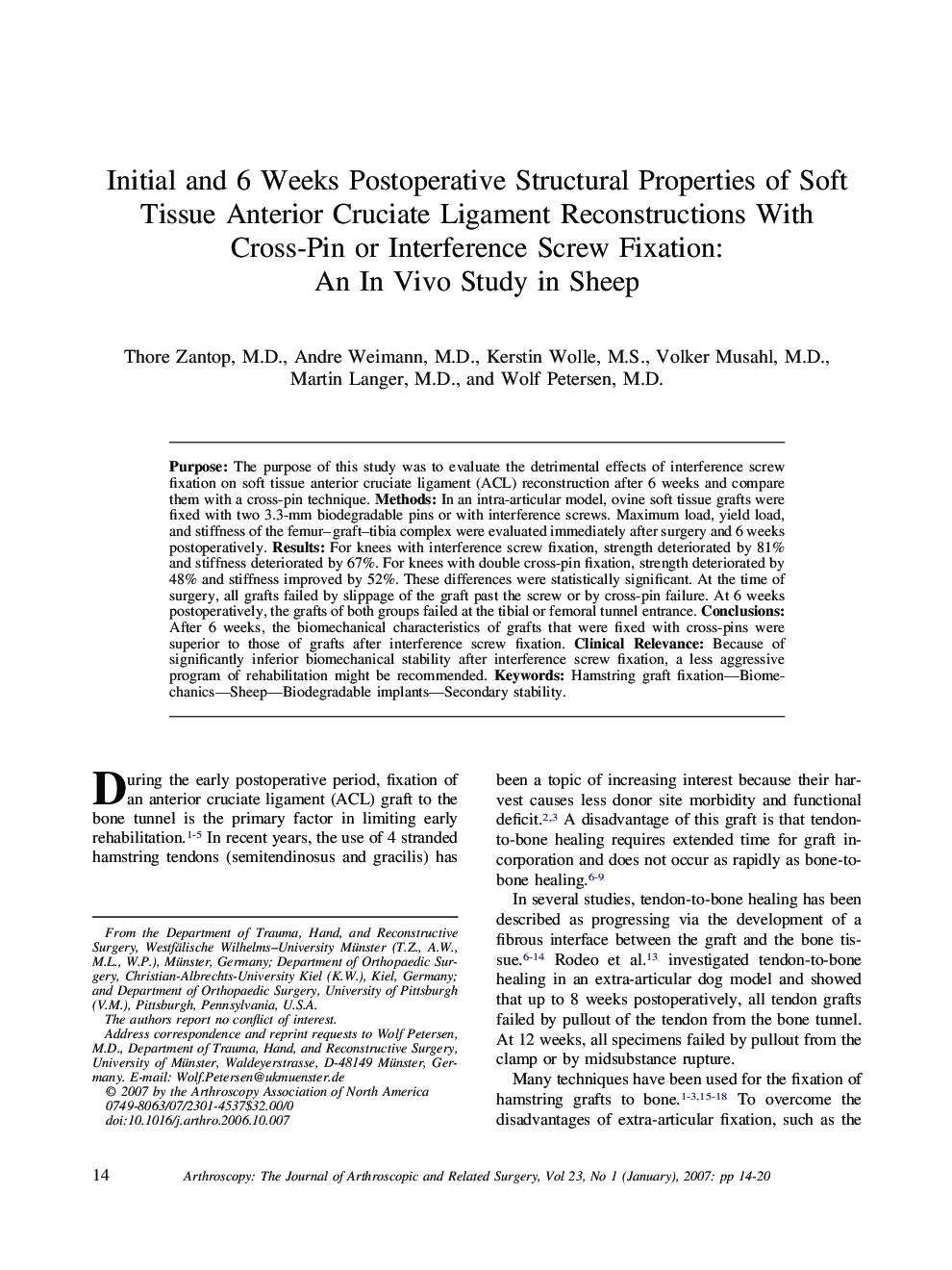| Article ID | Journal | Published Year | Pages | File Type |
|---|---|---|---|---|
| 4047212 | Arthroscopy: The Journal of Arthroscopic & Related Surgery | 2007 | 7 Pages |
Purpose: The purpose of this study was to evaluate the detrimental effects of interference screw fixation on soft tissue anterior cruciate ligament (ACL) reconstruction after 6 weeks and compare them with a cross-pin technique. Methods: In an intra-articular model, ovine soft tissue grafts were fixed with two 3.3-mm biodegradable pins or with interference screws. Maximum load, yield load, and stiffness of the femur–graft–tibia complex were evaluated immediately after surgery and 6 weeks postoperatively. Results: For knees with interference screw fixation, strength deteriorated by 81% and stiffness deteriorated by 67%. For knees with double cross-pin fixation, strength deteriorated by 48% and stiffness improved by 52%. These differences were statistically significant. At the time of surgery, all grafts failed by slippage of the graft past the screw or by cross-pin failure. At 6 weeks postoperatively, the grafts of both groups failed at the tibial or femoral tunnel entrance. Conclusions: After 6 weeks, the biomechanical characteristics of grafts that were fixed with cross-pins were superior to those of grafts after interference screw fixation. Clinical Relevance: Because of significantly inferior biomechanical stability after interference screw fixation, a less aggressive program of rehabilitation might be recommended.
